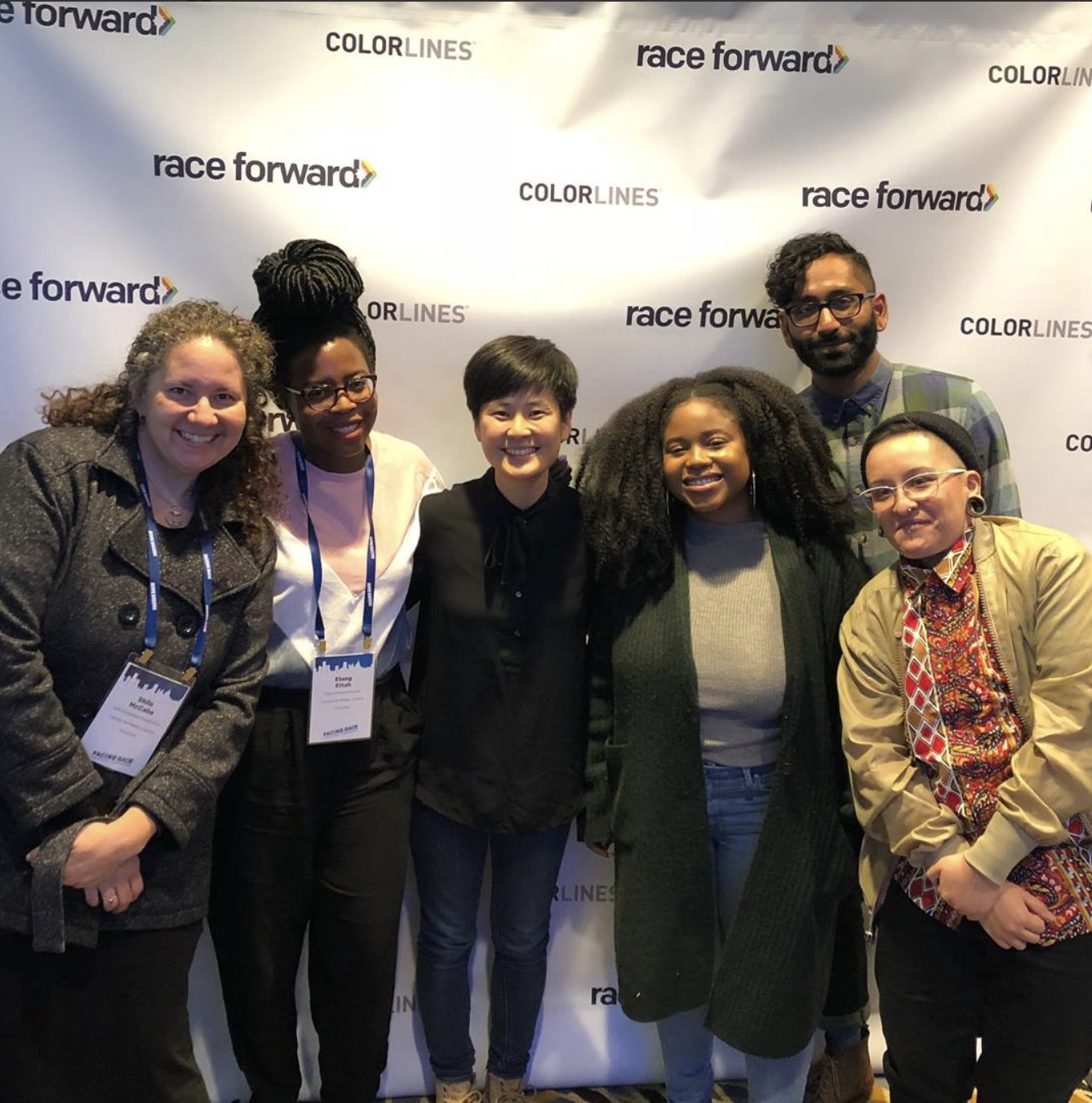Earlier this month, we joined activists, organizers, educators and community leaders at the Facing Race conference in Detroit, which provided an opportunity to deeply consider how our individual work comes together to advance racial justice for all. With hundreds of sessions dedicated to reimagining what justice looks like from a variety of angles and intersections, including workshops led by our Media Action Grassroots Network (MAG-Net) members, an essential theme continued to rise to the top: the relationship between narrative and power, and our narratives as an extension of our power.
Stories are never just stories, particularly when those committed to upholding oppressive systems like white supremacy, anti-Blackness, patriarchy, transphobia, capitalism and more, are those who control the dominant narratives we see and hear—ultimately controlling the norms, policies, and rules our society abides and operates by. As Color of Change’s Rashad Robinson mentioned during the conference’s opening plenary, “narrative builds power for people. Narrative power is the ability to change the norms and rules our society lives by.”
Controlling our narratives gives us the opportunity to not only paint accurate pictures of our lived experiences, but also gives us opportunities to add colors and complexities to them as well. When we don’t control our narrative, you only hear stereotypes and the injustices we endure. Our people are dying but, in reality, we’re also living fully and joyfully. We’re also harnessing our power to come together to change our material conditions and build solidarity and intersections across our movements. Harnessing our narrative power requires an imagination, unhindered by oppression, to create a world that has never existed before. When we control our narratives, we make progress toward painting the world we want to see.
For more, check out how our Network members harnessed the power of narratives throughout their Facing Race workshops:
.@questthedoc changes the conversation about:
Gun violence
What community safety looks like
Trauma
What we think the American Experience is#RaceFlicks @ #FacingRacehttps://t.co/yZPdKxC3G3 pic.twitter.com/SXz4CO3cVV
— Working Films (@workingfilms) November 10, 2018
🚫”Detroit is a blank slate.”
🚫”Detroit is crime.”
🚫”Detroiters are disconnected and uneducated.”We’ve heard the stereotypes. These Black & brown filmmakers share why they use their craft to display racism, Black joy & all the complexities of life in Detroit. #FacingRace pic.twitter.com/1qHaOvPDbg
— MediaJustice (@mediajustice) November 8, 2018
To advance environmental justice for people of color and low-income communities, we need to expand the narrative. How do we tell our stories? – Ana Montes, Organizing Director of @UtilityReform, a @mediaaction member #FacingRace #MediaJustice pic.twitter.com/R9fg14sxNG
— MediaJustice (@mediajustice) November 9, 2018
You see the police in our streets, our schools. We are talking about policing, criminalization and taking action – as a community. We are joined by our partners @4EdJustice @PuenteAZ and @BYP_100. #wecametolearn #FacingRace pic.twitter.com/d942k9kmNz
— Advancement Project (@adv_project) November 9, 2018
At #FacingRace, @cayden of @18millionrising is leading the room in building a timeline of life changing moments on the Internet – part of a workshop on the history and future of queer community online. #mediajustice pic.twitter.com/csbYsxHT9r
— MediaJustice (@mediajustice) November 10, 2018



